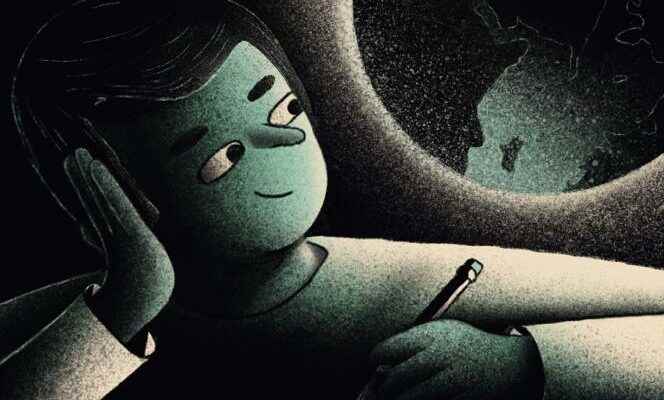VSIt is only by losing her mind that, sitting on the sidewalk where misery nails her, the little match girl in Andersen’s tale can escape the cold, the hunger and the frightening loneliness that will kill her for a few hours more. late. Falling prey to hallucinations, she imagines the food, the warmth she would need and, bringing to life the grandmother who loved her, the tenderness she misses just as much. All things which, if they were real, could not only save her life, but restore to her, with a place equal to the passers-by who pass her without a glance, her dignity as a human being.
Beyond its formal beauty, Andersen’s tale tells a reality so terrible that it is linked with madness and death. And this unlivable reality is that, today, of thousands of children: in August 2022, Unicef and Samusocial, in collaboration with Public Health Francehave counted more than 42,000 whose only homes are “emergency accommodation, makeshift shelters, or the street”.
However, if such living conditions always have a very serious effect on the psychological balance of adults, their consequences for children are even more serious.
What role does the possibility of having a home play in the psychological balance of a human being?
A home is for a human being a place that he can find and close every day, to be protected there from anything that could attack him.
This protection, which could seem to be only material, is psychologically essential for him, because it gives him a security essential to his balance. Deprived of this security, he is forced to be constantly vigilant in relation to himself – whom the cold, the heat, the noise or the bad weather mistreat –, and in relation to others, likely to endanger him. This vigilance leads him to exhaustion, both physical and psychological, all the more dangerous as it is impossible for him to rest: sleeping presupposes being able to lower his guard for a moment, it makes restorative sleep impossible.
But a home also allows you to escape the gaze of others.
How do we manage to live permanently under the gaze of others?
Knowing that if not watched, at least permanently visible, by everyone, is unlivable (and one of the reasons no doubt for which one becomes so quickly “crazy” in the street). The gaze of others, when one cannot escape it, runs the risk of very quickly becoming a persecuting element, like a camera filming without interruption. A dehumanizing camera, because it prohibits all intimacy: to be homeless is to be condemned to perform acts in public (such as defecating, for example) that others have not only the right but the duty to perform without we see them. Exclusion from the civilized world, which is of a particularly destructive violence.
You have 62.16% of this article left to read. The following is for subscribers only.
